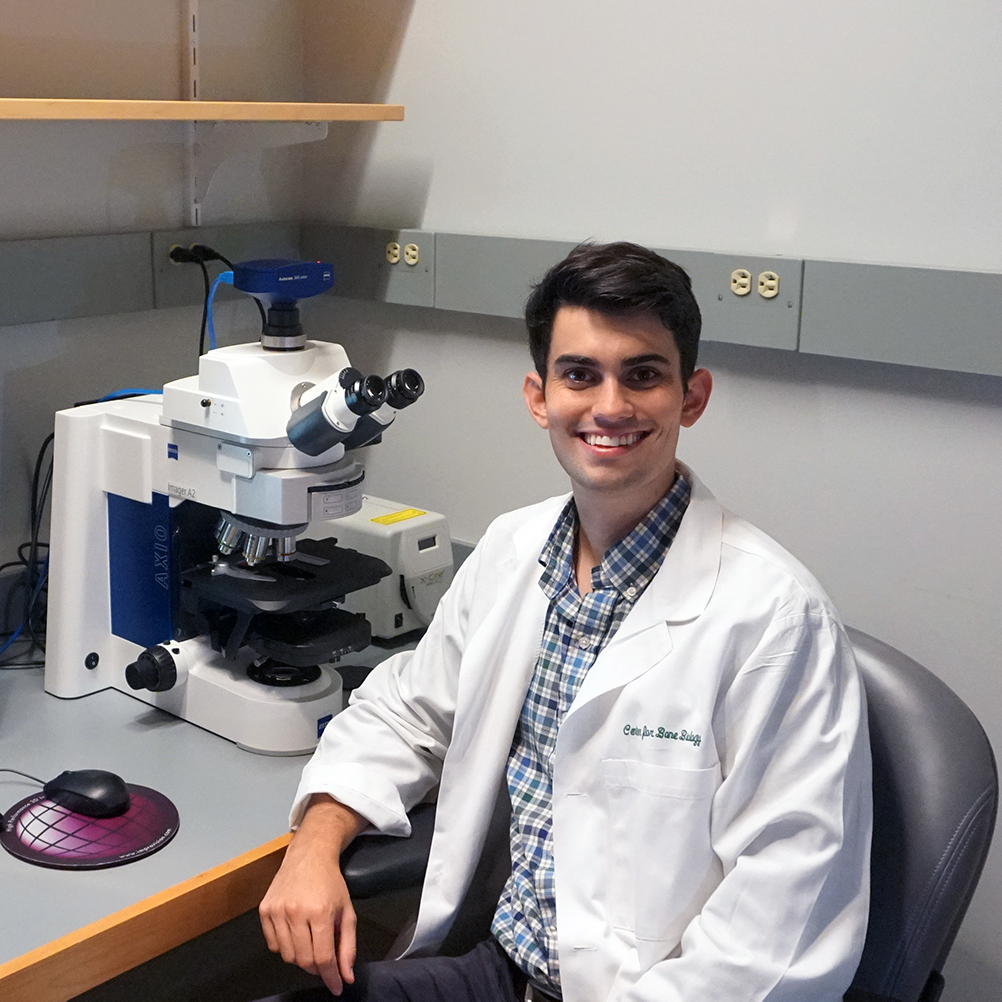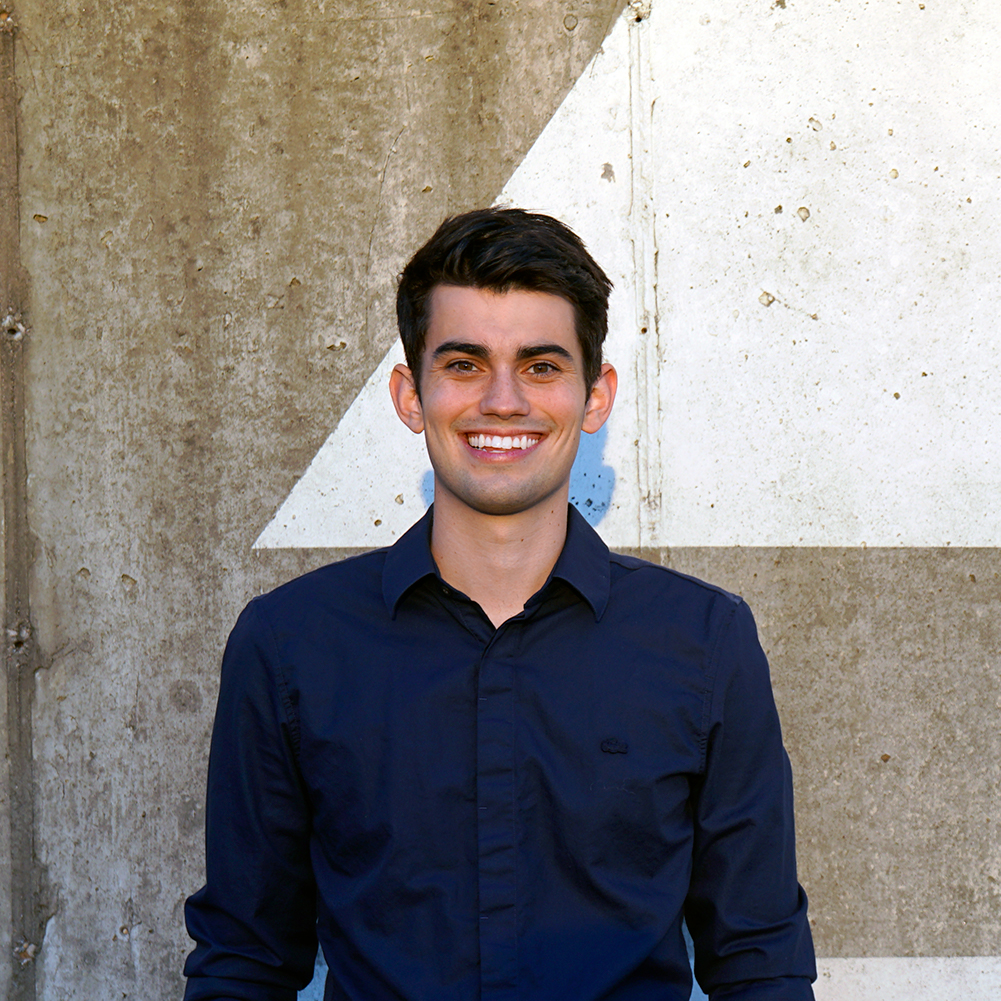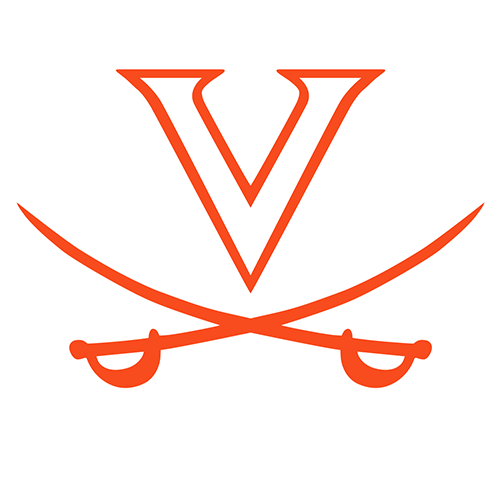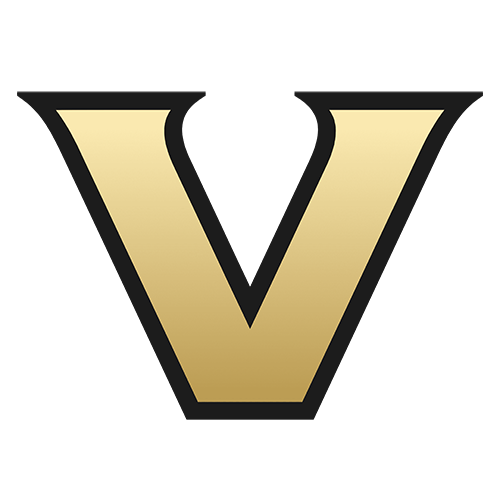David Florian (aka Dr. D-Flo) is an engineer with a passion for teaching and the open-source community. He created the Dr. D-Flo YouTube channel to share all of his projects and hopefully, inspire the next generation of DIYers. You can click through the tabs below to learn about David’s unique skillset and connections.

Modeling Diseased Bone Marrow
2017-2022
David was a Cancer Researcher at Vanderbilt University. His work focused on using additive manufacturing to generate models that recapitulate hematological and solid cancer metastases in the bone marrow. By seeding the appropriate cell populations on 3D printed bone scaffolds, healthy and pathological marrow tissue can be generated outside of the body for screening drugs.
As a side project, David has developed low-cost CNC liquid handlers to automate and expedite his research. The designs and software for this affordable instrument are published by Scientific Reports and available online at openliquidhandler.com.
Biodegradable Metallic Implants
2015-2017
As an undergraduate researcher, David investigated mechanisms to improve the corrosion resistance of magnesium alloys for use as a biomaterial for skeletal implants (e.g., fixators and bone screws). Through laser processing, it was possible to tune the surface chemistry of magnesium implants to change their degradation rate in simulated body fluid. This research was conducted at the University of Virginia and Monash University.
Publications
- L. Wang-Bishop, B. Kimmel, V. Ngwa, M. Madden, J. Baljon, D. Florian, A. Hanna, L. Pastora, T. Sheehy, A. Kwiatkowski, M. Wehbe, X. Wen, K. Becker, K. Garland, J. Schulman, D. Shae, D. Edwards, M. Wolf, R. Delapp, P. Christov, K. Beckermann, J. Balko, K. Rathmell, J. Rathmell, J. Chen, J. Wilson. STING-activating nanoparticles normalize the vascular-immune interface to potentiate cancer immunotherapy. Science Immunology (2023)
- D. Florian, N. Bennett, M. Odziomek, J. Baljon, M. Wehbe, A. Merkel, M. Fischer, M. Savona, J. Rhoades, S. Guelcher, J. Wilson. Nanoparticle STING agonist reprograms the bone marrow to an antitumor phenotype and protects against bone destruction. Cancer Research Communications (2023)
- L. Boller, S. Shiels, D. Florian, S. Peck, J. Schoenecker, C. Duvall, J. Wenke, and S. Guelcher. Effects of nanocrystalline hydroxyapatite concentration and skeletal site on bone and cartilage formation in rats. Acta Biomaterialia (2021)
- B. O'Grady, M. Geuy, H. Kim, K. Balotin, E. Allchin, D. Florian, N. Bute, T. Scott, G. Lowen, C. Fricker, M. Fitzgerald, S. Guelcher, J. Wikswo, L. Bellan, and E. Lippmann. Rapid prototyping of cell culture microdevices using parylene-coated 3D prints. Lab on a Chip (2021)
- D. Florian, M. Odziomek, C. Ock, H. Chen, and S. Guelcher. Principles of computer-controlled linear motion applied to an open-source affordable liquid handler for automated micropipetting. Scientific Reports (2020)
- D. Florian, G. Lowen, K. Kwakwa, J. Vanderburgh, and J. Rhoades. Biomaterials and tissue engineering cancer models. Encyclopedia of Bone Biology (2019)
- D. Florian, M. Melia, F. Steuer, and M. Purzychi. Laser Irradiation of Mg-Al-Zn alloy: Reduced Electrochemical kinetics and enhanced performance in simulated body fluid. Biointerphases (2017)
- M. Melia, D. Florian, et al. Investigation of critical processing parameters for laser surface processing of AZ31B-H24. Surface and Coatings Technology (2017)
- M. Melia, M. Serron, D. Florian, J. Weiler, J. Scully and J. Fitz-Gerald. Excimer laser processing of Al containing Mg alloys for improved corrosion resistance. Magnesium Technology (2021)
A Renaissance Man
David prides himself on his diverse skill set. His most prominent fields of expertise are additive manufacturing (i.e., 3D printing) and biotechnology. Below is a list of his technical skills.
Digital Fabrication
Digital Fabrication is a design and manufacturing workflow, where parts are created digitally within a CAD (computer-aided design) program prior to being transferred over to CAM (computer-aided manufacturing) software. The CAM software outputs code that instructs digital fabrication tools, which additively (e.g., 3D print) or subtractively (e.g., mill) manufacture parts. David is not only fluent in CAD programs, such as Fusion 360 and SolidWorks, but is also well-versed in designing toolpaths in Inventor HSM and Fusion 360 CAM.
David can operating a number of different computer controlled (CNC) fabrication tools to turn 3D models into real-life parts. David has experience with the following additive manufacturing technologies:
- Fused Filament Fabrication (FFF)
- Large Format (Screw Extrusion) 3D Printing
- Stereolithography (SLA)
- Selective Laser Sintering (SLS)
- 3D Inkjet Printing
- Bioplotting
David can also run the following subtractive manufacturing tools:
- 3- and 4-Axis CNC Mill
- CNC Plasma Cutter
- Fiber/C02 Laser Cutter
David not only has the ability to operate these CNC machines but can also build many of them. He has built FFF 3D Printers, a Large Format 3D Printer, a CNC Mill, and a CNC Plasma Cutter.
Programming
David has the ability to program in C/C++ and python. Most of his programming skills have evolved from performing computational analyses in his research. However, he has some experience in developing desktop applications with Node.js/Electron for CNC control.
Microscopy
Most of David’s research occurs at the cellular level, and consequently, a microscope is required to interrogate the complex phenomena of cancer metastasis and immune activation. David is a trained operator of the following types of microscopes:
- Scanning Electron Microscope (SEM)
- Epifluorescent Microscope
- Confocal Microscope (Single and multi- photon scopes)
David’s understanding of optical systems has applications to many different fields, including photonics/laser science.
Biological Assays
David routinely performs biological assays to measure the effects of perturbations on his cancer models. While David has the ability to follow the protocol for any number of biological assay, below is a list of assays that he is proficient at:
- Flow Cytometry
- Quantitative Polymerase Chain Reaction (qPCR)
- Western Blot
- Immunohistochemistry (IHC)
- Immunofluorescence (IF)
- Luminex
Video Production
While David has no formal training in video filming and editing. The success of his YouTube channel highlights his ability to distill complex topics into entertaining and informative videos.


